Ignoring the Warning Signs Was My Biggest Mom Fail
When I became a mother, I knew my life would change forever. Because I experienced postpartum depression, this change looked very different compared to other moms.
I couldn’t wait for all the warm, fuzzy feelings to wash over me in the delivery room and make up for the less glamorous parts of childbirth (hello, third-degree tear!). All my years of babysitting combined with my nursing background would translate to being the best mom ever, right?
Wrong.
When they put Evan on my chest, I felt happy but shocked. In the days that followed, I began to feel like a hollowed out version of myself. I felt I had made a terrible mistake.
I wanted SO badly to conform to the image of the doting mother, and I felt guilty for not feeling all the motherly feels. So I overcompensated by making sure everything seemed perfect.
Hiding these feelings meant I was headed straight for burnout.
A recent post in The New Yorker highlighted the unspoken pressure to be efficient in everything we do as moms. At one point, writer and parent Kimberly Harrington states:
I have righteous anger and more righteous anger. In fact, I have so much righteous anger, do you think maybe I’m a character in the Bible?
Anger continues to be a barometer of how badly my depression is raging at any given moment. Some days I feel fine, and other days I feel like punching a hole through the wall with my bare fist for no reason.
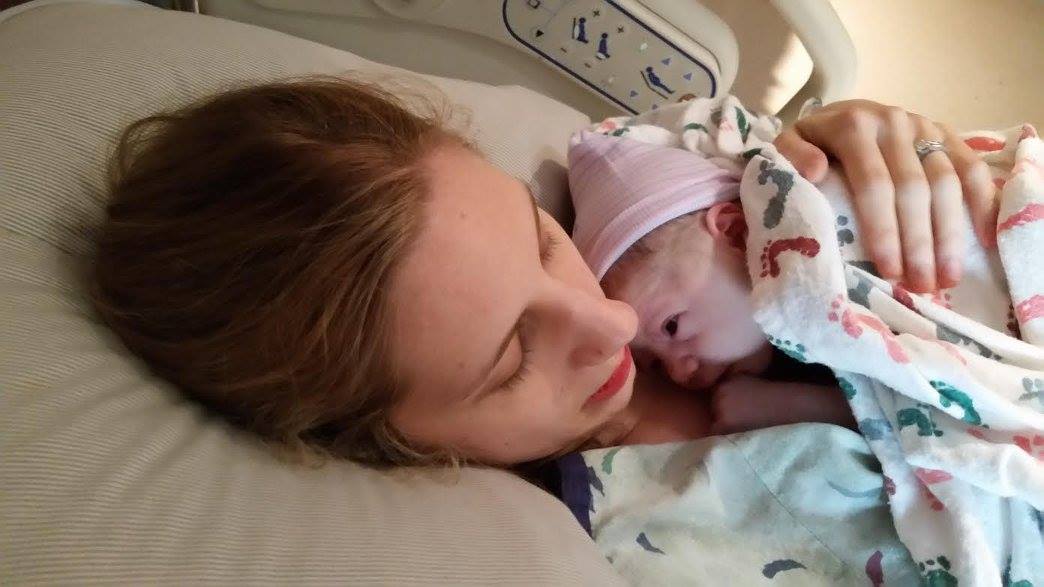
We expect a lot from ourselves because we’re so damn good at juggling multiple demands. It’s also why high achieving moms can feel “off” or stretched thin.
We are consumed by this business of busyness; some days, I'm running solely on caffeine and adrenaline.
Even if you haven’t reached the point where your frantic pace is crushing your soul, there are many good reasons to set aside time to re-evaluate your priorities.
I’m writing this post because burnout and depression during motherhood is real, and it is debilitating.
You may be reading this right now wondering how much more you can take. Or how it got to this point. I truly hope sharing my experience can help you make some important decisions going forward.
What is Mom Burnout?
“Burnout” is a term commonly used to describe occupational fatigue in caregiver roles, such as nurses, teachers and personal aides. It also applies to motherhood, since mothers have a greater caregiving burden than fathers.
Even still, parent burnout affects 13 percent of mothers and 12 percent of fathers.
Parent burnout affects 13 percent of mothers and 12 percent of fathers.
Mom burnout occurs when we feel extreme emotional exhaustion from what I like to call “domestic micromanagement.” As collectors of endless invisible tasks, we become prone to illness and the effects of cumulative stress.
Burnout is based on factors such as maternal age, age of children and number of children, partner involvement, marital status and working status (full-time vs. part-time, etc). These factors correspond with teacher burnout.
The end result, however, is typically the same – a loss of personal satisfaction. We become insensitive to the needs of others because we’ve ignored our own for so long.
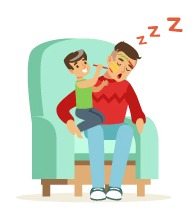
What Are The Causes of Burnout?
Mom burnout stems from prolonged periods of stress, sleep deprivation and tension.
When stressed, our adrenal glands churn out massive amounts of “fight or flight” hormones like cortisol and adrenaline to keep us going, leaving us feeling chronically fatigued if we live like this for too long.
Mom burnout and job burnout stem from the same causes, which include:
- A lack of control. You may feel a sense of powerlessness after a traumatic birth experience or a financial setback related to your children.
- A dysfunctional work/home environment. Spousal conflict can create a strain on your relationship and exacerbate existing stressors.
- Lack of reward. You may feel under-appreciated for all the hard work you do. I think most moms can relate!
- Mismatched values. Perhaps you had a vision of what motherhood would be like, and the reality doesn’t come even close.
- Poor job fit. Maybe you’d prefer to be out chasing your career ambitions rather than changing diapers all day, but this is the reality of your life right now.
- Activity overload. Chasing after small children requires a high level of focused energy that can feel tedious and draining over the long run.
- Loss of social outlets. You need more adult interaction. You may have started to withdraw from certain social opportunities due to exhaustion.
- Work-life balance. Or the lack thereof.
- Resentment. You see others flourishing in the motherhood department – or at least, so it seems. You resent their success and happiness.
- Extreme commitment. Commitment is a virtue until it means neglecting your own needs for the sake of others.

What are the Symptoms of Mom Burnout?
Wondering if you have mom burnout? Here are a few red flags:
- Frequent headaches, anxiousness or restlessness
- Constant fatigue and being unable to sleep at night – even after your baby is sleeping through the night
- Frequently feeling overwhelmed, which makes you lash out at others
- Feeling empty inside
- Not laughing as much as you used to
- Having inflated expectations for what you should be accomplishing each day. Filling your day with tasks in the hopes of feeling fulfilled.
I felt all of these things and then some. In the beginning, I could control what I was projecting to others, but eventually it was too much of a burden to hide this roller coaster ride of emotions.
After a year of living with undiagnosed depression, I packed up my dog, child and important personal possessions and drove cross country to live with my parents in Georgia.
What’s the Difference Between Mom Burnout and Depression?
Whereas burnout applies to a specific job such as your 9-5 gig, depression affects all areas of your life.
Typically, a depressed person will have feelings of low self-esteem, hopelessness and possibly even suicidal tendencies.
Sadly, another common symptom of depression is having intrusive thoughts about harming your baby, which can occur even if you don’t plan to act on them.
A person suffering from burnout will usually recover with adequate rest; a depressed person needs psychological treatment from a health care professional in order to fully recover.
In my case, my depression worsened to the point where I'd break down into tears for no reason at all. My son couldn't understand why mommy was crying at the kitchen table. It’s been a long road (literally), but I’m getting there one day at a time.
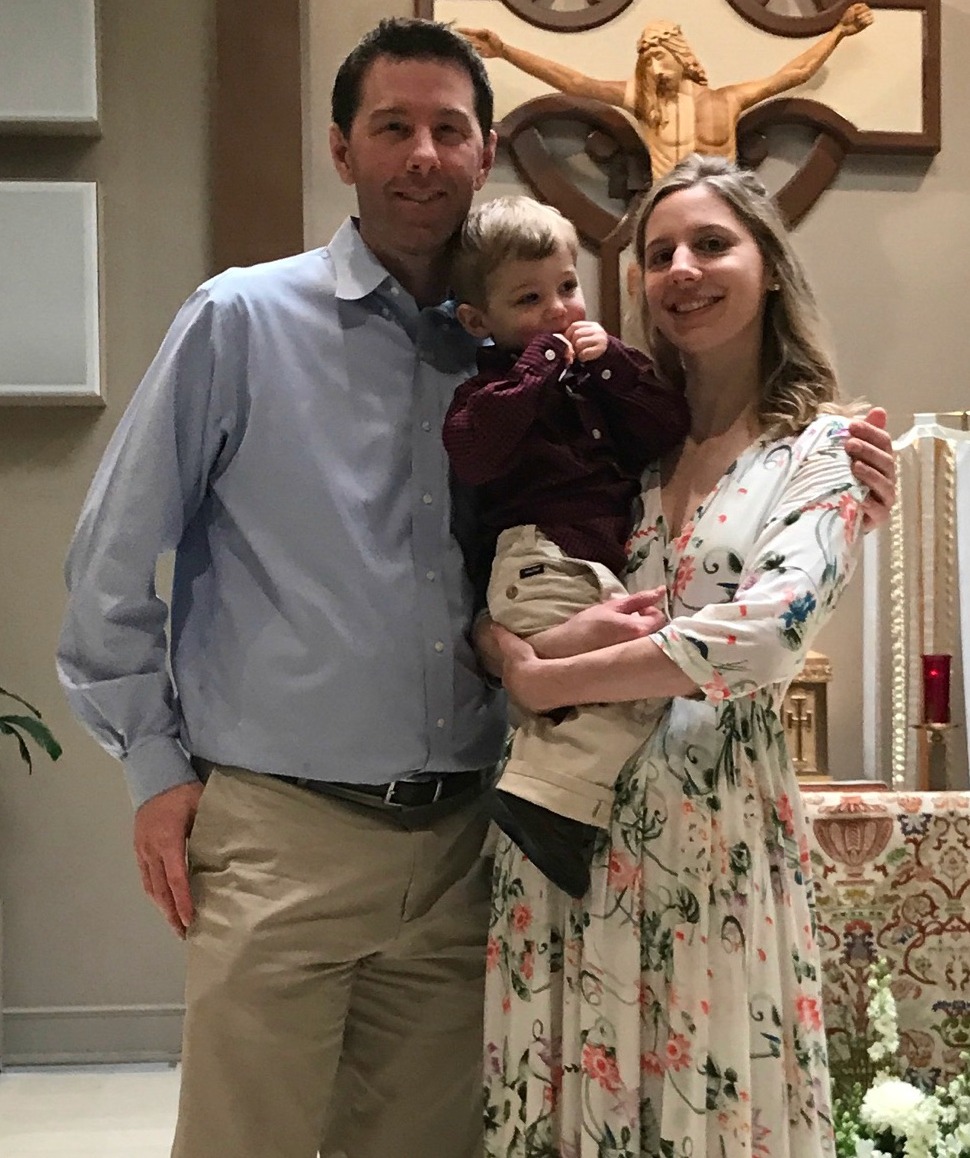
What is the Treatment for Mom Burnout?
How do you recharge your batteries so you can start feeling like yourself again? If possible, step away from your domestic responsibilities for a few days. Your kids and husband will benefit from a happier mom. Recruit the help of family members if you need to. It may be a little bit embarrassing to admit you're struggling, but I guarantee they will want to help when they realize how terrible you feel.
Going forward, how can you strike a balance between doing for others and doing for yourself? Here are a few ideas based on my own recovery experience.
If you don't want to burn out, stop living like you're on fire. -Brené Brown
Give yourself some built-in rewards: I try to schedule one fun activity every day. This gives me something to look forward to. It can be as simple as guided meditation on YouTube, or more involved like a getaway weekend with your spouse.
Make a schedule for yourself. Having a routine helps to minimize stress. Keep to a sleep schedule, as quality sleep has a huge impact on your cognitive health. Use a bullet journal to track long term goals and plan out your week in advance.
Planning ahead allows you to cluster similar activities together, which saves you time down the road.
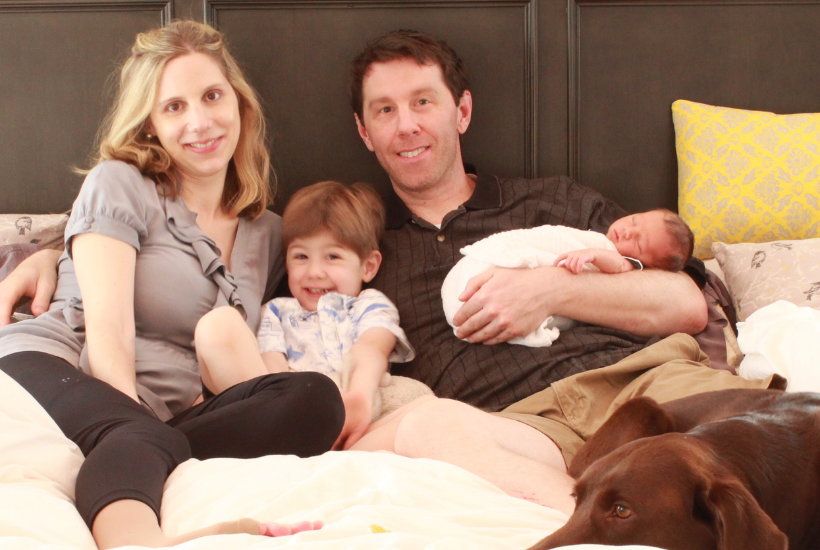
Reach out to old friends. When you’re feeling low, your first instinct will be to retreat. If you’re an introvert like me, you may need to retreat – at least initially – in order to conserve energy. Once you are feeling better, however, it’s important to talk to your friends and be open with them. They can be an amazing source of humor and inspiration.
Exercise. Even on my lowest days, I find exercise lifts my mood. Ideally you'll want to exercise to the point of sweating, since this level of effort will help release feel-good endorphins.
Tap into the healing powers of music. Music fuels exercise, puts me into a relaxed state and helps me tap into happy nostalgic moments. In Healing at the Speed of Sound, Alex Doman and Don Campbell share the powerful effects of music on patients suffering from terminal illnesses and cardiac disease. As I write this, I’m listening to orchestral Disney Classics on YouTube, and it’s making me feel all the feels 🙂
Find volunteer work. Helping someone else not only benefits the other person, but it shifts your focus away from your own problems. If you take the time to volunteer, you may find yourself connecting with the person you least expect. Becoming a nurse really opened my eyes to all the great advice other people have to offer.
Find any excuse to get out of the house. If you’re a low maintenance person like me, planning an excursion will push you to shower and take care of your hygiene. A change of scenery can also change your perspective.
This could be as easy as getting away to a coffee shop to read for a few hours while your husband watches the kids.
Get out in the sun. You only need about 10 minutes of unprotected exposure to the sun to benefit from the effects of Vitamin D. Even Florence Nightingale would place her patients in the lightest part of the room in order to speed up healing.
Find your happy place. This sounds silly, but it really helps. I love the beach, so I often stream videos of crashing waves and envision myself reading in the sun. My other happy place is at my work bench with my power tools, where I can execute all my fun projects. If you can’t physically get to your happy place, meditation is the next best thing.

Create a “Power Hour” morning routine. I’m usually in bed by 9pm so that I can be productive before my son wakes up for the day. I’ll take my time eating breakfast and plan out the goals of my day. I am 10x more productive when I go to bed early and wake up early.
Perform a life review by applying the Pareto principle. Only 20 percent of your work drives 80 percent of your outcomes. What can you eliminate from your daily habits and activities to carve out more time for self-care and hobbies? Time is a precious commodity in the sisterhood of the motherhood; what is ultimately going to make you happier and more productive?
If none of these routines break your cycle of negative feelings, consider talking to a licensed mental health professional. You owe it to yourself to get the help you need.
***
Did I fail as a mother by not taking care of myself? Yes. Will I fail again? Hopefully not, but you can’t plan for these things. Failure is a part of growth, and at the end of the day I’m only human.
Ever tried. Ever failed. No matter. Try again. Fail again. Fail better. – Samuel Beckett.
Maybe you’re reading this and feel like you’re lagging behind. Or maybe your sense of humor doesn’t seem to be working anymore. You’re snapping at the people closest to you, and you’re starting to resent your choices in life.
Now is the time to be selfish and get the help you need. Take it from me when I say you can't just run away from the problem.
Last but definitely not least, know you're not alone.
Regardless of where you're at in the recovery process, here are some additional resources to guide you on your path:
Burnout: A Remote Worker's Biggest Opponent, by The Remote Work Tribe
Parental Burnout: Causes, Signs, & How to Cope, written by Licensed Social Worker Lena Suarez-Angelino and reviewed by physician Meera Patel

Sources:
Akca, F. & Yaman, B.. The Effects of internal-external locus of control variables on burnout levels of teachers. 2010
Institute for Quality and Efficiency in Healthcare. Depression: What is burnout?
Davis-Laack, P. Maxed Out Parents: 5 Strategies To Ease Burnout, Psychology Today
Heller, T., & Hsier, K. (1997). Maternal and paternal caregiving of persons with mental retardation across the lifespan. Family Relations, 46, 407-416.
Mayo Clinic: Job Burnout How to Spot it and Take Action
Wallace, K. Parental Burnout: It's Really a Thing. CNN.com

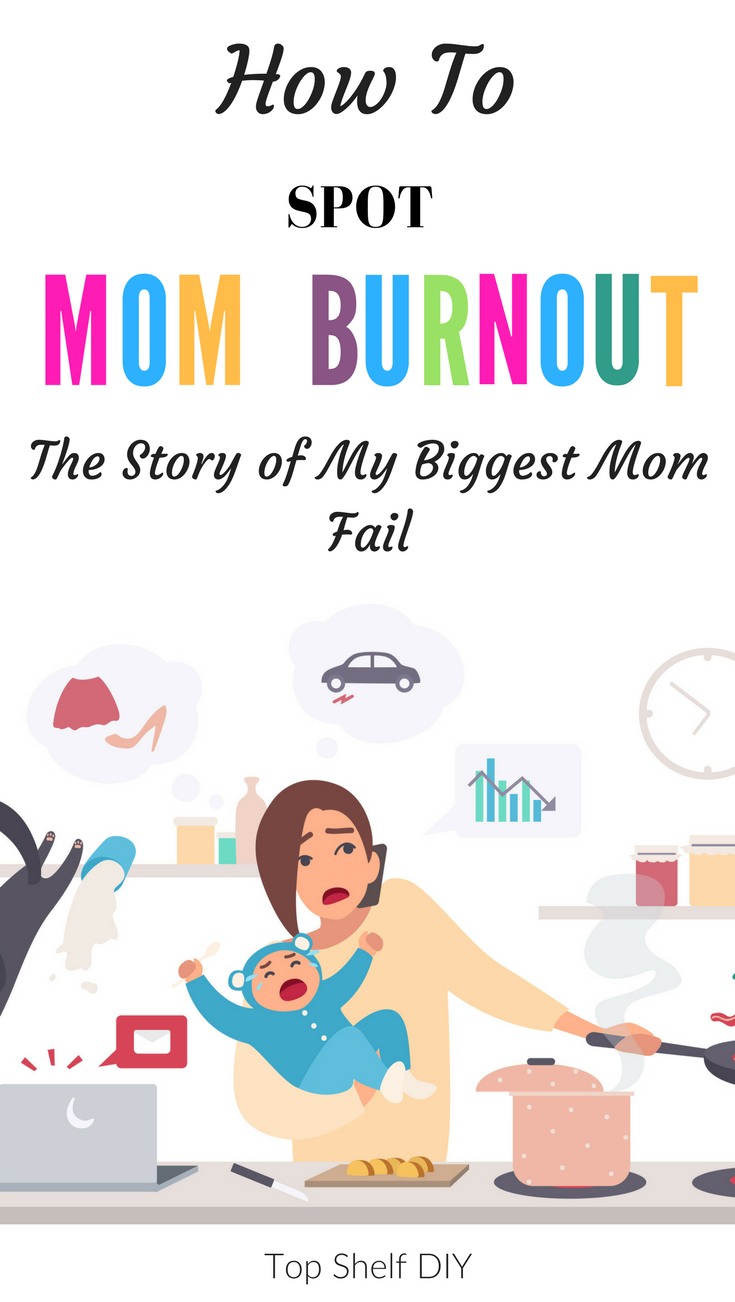


Leave a Reply